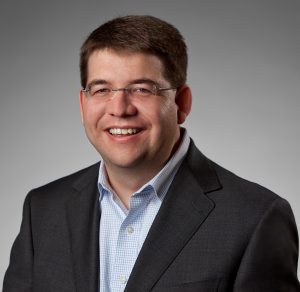Catalent says it is evaluating separating out its biologics business after investments and M&A have propelled the CDMO out of the sub-5,000 L space.
Catalent has reported revenues of US$628 million (€524 million) for its third quarter fiscal 2018. The contract development and manufacturing organization (CDMO) attributed 18% year-on-year jump to “robust organic growth” in its biologics business and the acquisition of Cook Pharmica last October.
The $950m deal added an 875,000ft2 production and fill/finish site in Bloomington, Indiana, complementing several expansions – the most recent being a third manufacturing suite – at Catalent’s biomanufacturing facility in Madison, Wisconsin.
According to CEO John Chiminski, demand for biologics services has been robust over the past few years and this is set to continue.
“All of the work that we’ve done over the last several years, leading up to the Madison investments as well as the Bloomington investment, show that demand is going to outstrip supply for about the next five years,” he told investors on a call.
The firm has historically focused on the sub-5,000-L bioreactor space, driven by the uptake of single-use systems and demand for flexible manufacturing.
However, through its growth strategy, the firm will move into the 20,000 to 30,000 L capacity space, though Chiminski said this is still small compared to the overall capacity in the industry.
“I really have no concerns that Catalent at some point will ever be caught in an overcapacity situation because, with that modest amount of capacity, we’re going to be able to continue to pick and choose our customers.”
Separate Business?
Biologics comprised approximately 14% of Catalent’s consolidated revenue in fiscal year 2017 and the Cook acquisition has pushed this to 21%. And according to Chiminski, the firm is looking to reach the 30% to 35% range through its strategic growth.
Catalent’s biologics business is reported as part of its Drug Delivery Solutions business, but as biologics increases its share of the CDMO’s overall revenues, it could be separated out.
“As far as separating out to a separate unit, I would say that’s something that we are evaluating,” CFO Wetteny Joseph said on the call.
“We’re required to report our segments similar to how we run the business internally. And should we decide to do that, we will certainly inform you and provide an update at that time.”
Structural Reorganization

Tedd Greene becomes senior vice president of Catalent Biologics, with responsibility for the entire biologics business. Image c/o Catalent
Catalent has also announced several organizational changes set to align its biologics business post-Cook merger.
Former president of Cook Pharmica, Tedd Green, becomes senior vice president of Catalent Biologics, with responsibility for the entire biologics business.
Mike Riley becomes VP and general manager of Drug Substance and Bioanalytical services and will lead the company’s biologics manufacturing business, including its mammalian cell-line engineering and biomanufacturing capabilities.
Cory Lewis will become VP and general manager of the Biologics Drug Product business, while Ryan Hawkins has been appointed as general manager of the Bloomington site.
